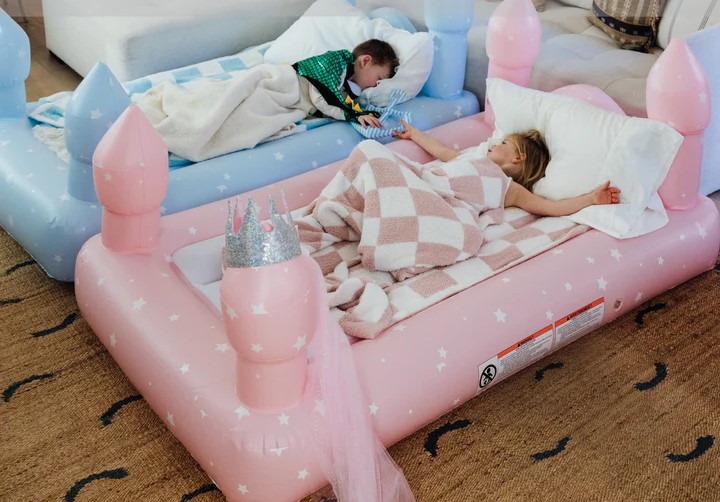Sleepovers are a beloved tradition for many children, offering a distinct opportunity to spend extended time with friends outside of school. These overnight gatherings are fun and crucial to a child’s social development.
From the excitement of setting up sleepover beds to the joy of sharing stories late into the night, sleepovers create a perfect environment for building lasting memories. This article explores the various social benefits of sleepovers, highlighting how these special occasions help children build stronger friendships, develop essential social skills, and grow emotionally and creatively.
Building Strong Friendships
Sleepovers are an important part of childhood because they are powerful tools for building strong friendships. The extended time spent together allows sible during shorter playdates or school hours. When children share a bed and spend an entire night with their friends, they engage in activities that foster deeper connections. From playing board games to sharing stories and secrets, these experiences create a sense of closeness that is hard to replicate in other settings.
One key aspect of sleepovers that strengthens friendships is the opportunity for uninterrupted conversations. Without the usual distractions of daily life, children can talk more freely and openly, discussing their thoughts, dreams, and concerns. This kind of deep communication helps them understand each other better and builds trust and empathy.
Also, the collaborative nature of sleepover activities encourages teamwork and cooperation. Whether they are working together to build a blanket fort, plan a themed sleepover, or solve a puzzle, children learn to rely on each other and value each other’s contributions.
These shared experiences teach kids important lessons about collaboration and mutual support, which are essential for maintaining healthy friendships.
Developing Social Skills
Sleepovers are an excellent setting for children to develop essential social skills. Being in a group environment outside of school presents challenges and opportunities for kids to practice and refine their social abilities. During sleepovers, children learn to navigate group dynamics, such as sharing space and compromising on activities, which are crucial skills for overall social development.
Effective communication is another key skill honed during sleepovers. Kids learn to express their ideas clearly, listen to others, and engage in meaningful conversations. This practice helps them become better communicators and more empathetic listeners.
Encouraging Independence and Responsibility
If you want to encourage independence and responsibility in children, sleepovers can help. Being away from home, even for a night, allows kids to care for themselves and manage their personal needs. This experience teaches them to be more self-reliant and confident in their abilities. Simple tasks like setting up their beds, packing an overnight bag, and keeping track of their belongings promote organizational skills and personal responsibility.
Participating in a sleepover also requires children to follow household rules and routines that may differ from their own. Adapting to these new environments helps kids become more flexible and resilient. They learn to respect others’ spaces and boundaries, helping them coexist harmoniously with peers moving forward.
What’s more, sleepovers often involve planning and preparation, providing children witMoreoverties to take on leadership roles. Whether they are helping to organize activities or deciding on a group snack, kids learn to make decisions and manage their time effectively. These experiences empower them to take initiative and develop a sense of accountability.
Enhancing Emotional Well-Being
Spending time with friends in a relaxed setting helps kids feel valued and understood, which boosts their self-esteem and confidence. The positive interactions and shared experiences during sleepovers create a sense of belonging and acceptance.
Participating in sleepovers also helps children develop resilience. Being away from home, even temporarily, encourages kids to face new situations and challenges, contributing to a sense of adventure and adaptability. The encouragement and support from friends during these times can help children feel more secure and capable of handling unfamiliar circumstances.
Last but certainly not least, sleepovers are filled with joyful moments that create lasting happy memories. Engaging in fun activities, laughing together, and enjoying each other’s company contribute to reducing stress and anxiety. These positive emotions can have a long-lasting impact on a child’s overall well-being, helping them develop a more optimistic outlook.
The Lasting Magic of Sleepovers
Sleepovers offer more than just a fun evening; they are a cornerstone of childhood social development. By building strong friendships, developing social skills, encouraging independence, and enhancing emotional well-being, sleepovers create magical memories that last a lifetime.
Parents can support their children’s growth by facilitating these valuable experiences, knowing that the benefits extend far beyond the overnight stay.





